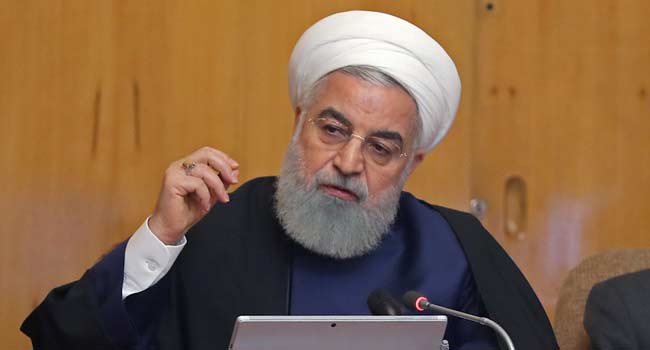Germany, UK Warn Iran Over Uranium Plans As EU Urges Caution
Iran set a 10-day countdown on Monday to exceed the 300-kilogram limit set on its enriched uranium stocks, dealing another blow to the crumbling nuclear accord signed by Tehran and six international powers.
The EU has battled to save the agreement since US President Donald Trump withdrew and reimposed sanctions, but Iran said it would step back from exceeding the 300-kg limit on June 27 only if “other parties live up to their commitments”.
The move comes as Iran tries to step up pressure on the deal’s other signatories — Germany, France, Britain, China and Russia — to help it sidestep US sanctions and in particular enable it to sell oil.
German Foreign Minister Heiko Maas rejected the Iranian ultimatum and insisted Tehran must stick to its commitments under the deal.
“We have already said in the past that we will not accept less for less. It is up to Iran to stick to its obligations,” Maas said after talks with EU foreign ministers in Luxembourg.
“We will certainly not accept a unilateral reduction of obligations.”
A spokesman for the British government echoed the call, saying the E3 — the European signatories to the deal — has “consistently made clear that there can be no reduction in compliance”.
“For now Iran remains within its nuclear commitments. We are coordinating with E3 partners on next steps,” the spokesman added.
The European Union’s diplomatic chief Federica Mogherini said the bloc would not act on the basis of Iranian rhetoric but wait for reports by the UN’s nuclear watchdog, the International Atomic Energy Agency (IAEA).
“Our assessment on the implementation of the nuclear deal has never been, is not and will never be based on statements, but on the evaluation that the IAEA makes, the reports that the IAEA produces and that can be done at any time,” Mogherini said after the talks.
“Announcements are relevant elements of political dialectics but our assessment on the implementation of the agreement is based on the factual, technically sound assessment and evaluation that the IAEA makes in its reports.”
On May 8, President Hassan Rouhani said Iran would stop observing restrictions on its stocks of enriched uranium and heavy water agreed under the 2015 nuclear deal.
Rouhani said the move was in retaliation for the unilateral US withdrawal from the accord a year earlier, which saw Washington impose tough economic sanctions on Tehran.
Tensions between Tehran and Washington have escalated ever since, with the United States bolstering its military presence in the region and blacklisting Iran’s Revolutionary Guards as a terrorist organisation.
AFP



